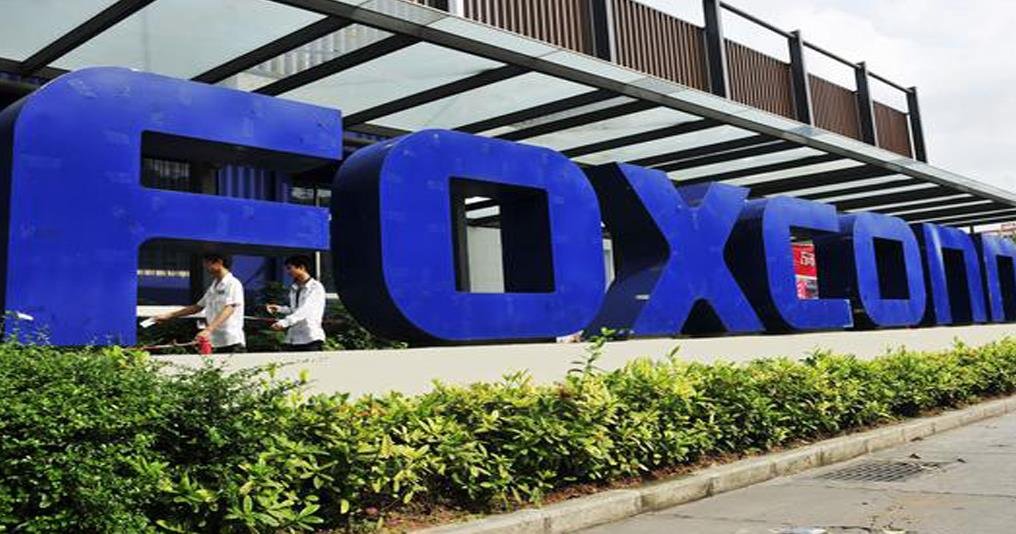China has launched an investigation into tech giant Foxconn, a Taiwanese firm that is one of the world’s largest contract producers of electronics and a key supplier for Apple’s iPhones, over tax and land irregularities. Beijing also urged Taiwanese firms operating in the country to show “responsibility” and play an active role in promoting the peaceful development of cross-Strait relations.
Foxconn under scrutiny
State media reported over the weekend that Foxconn, also known as Hon Hai Precision Industry, was under investigation by the Chinese authorities. It did not specify what offences Foxconn may have committed, nor any details of the probe. However, some analysts speculated that it could be related to Foxconn’s alleged tax evasion, land use violations, or environmental issues.

Foxconn is China’s largest private-sector employer, with more than a million workers nationwide. It has been expanding its production capacity in China in recent years, especially in the inland provinces where labor costs are lower. However, it has also faced criticism for its labor practices, environmental impact, and tax avoidance.
Foxconn said in a statement that it was cooperating with the investigation and that its operations were not affected. It also said that it was committed to complying with all laws and regulations in China and that it would continue to contribute to the country’s economic and social development.
China warns Taiwan firms to be responsible
Asked about the investigation on Wednesday, a spokeswoman for Beijing’s Taiwan Affairs Office, which manages relations with the self-ruled island, said it was “normal law enforcement behavior”. “Relevant mainland authorities treat all enterprises equally and conduct compliance investigations in accordance with laws and regulations,” Zhu Fenglian told a regular press briefing.
But she also said that “while Taiwan companies are sharing growth dividends and achieving rapid development on the mainland, they should also assume corresponding social responsibility and play an active role in promoting the peaceful development of cross-Strait relations”. She added that Beijing would continue to support and protect the legitimate rights and interests of Taiwan firms in China.
Taipei’s vice president warned this week that Taiwanese companies based in China may be forced to relocate if they feel “unjustly pressured”. “If they grow wary and fearful, losing trust in China, they might gradually relocate their bases to other countries,” Lai Ching-te said at a press conference. He urged China to “cherish and value” Taiwanese businesses and not to pressure them “every time there is an election, asking them to express allegiance or even to support specific candidates”.
Taiwan and China have been governed separately since the end of a civil war in 1949. Beijing claims Taiwan as part of its territory and has not ruled out the use of force to reunify it. Relations have deteriorated since President Tsai Ing-wen took office in 2016, as she rejects Beijing’s stance that Taiwan is part of “one China”. China has ramped up military, diplomatic, and economic pressure on Taiwan, while Taiwan has sought to strengthen its ties with the US and other allies.
Foxconn’s global presence
Foxconn is not only a major player in China’s tech industry, but also a global leader in electronics manufacturing. It produces devices for Apple, Samsung, Huawei, Sony, Dell, HP, and many other brands. It has factories in more than 10 countries, including Vietnam, India, Brazil, Mexico, and the US.
Foxconn has been diversifying its business portfolio in recent years, investing in sectors such as electric vehicles, semiconductors, cloud computing, and digital health. It has also been seeking to reduce its reliance on China as a production base amid rising labor costs, trade tensions, and geopolitical uncertainties.
Foxconn’s chairman Liu Young-way said last month that the company was aiming to increase its revenue by 10% this year and that it was optimistic about the global demand for technology products. He also said that Foxconn was prepared for any possible supply chain disruptions caused by the Covid-19 pandemic or other factors.
